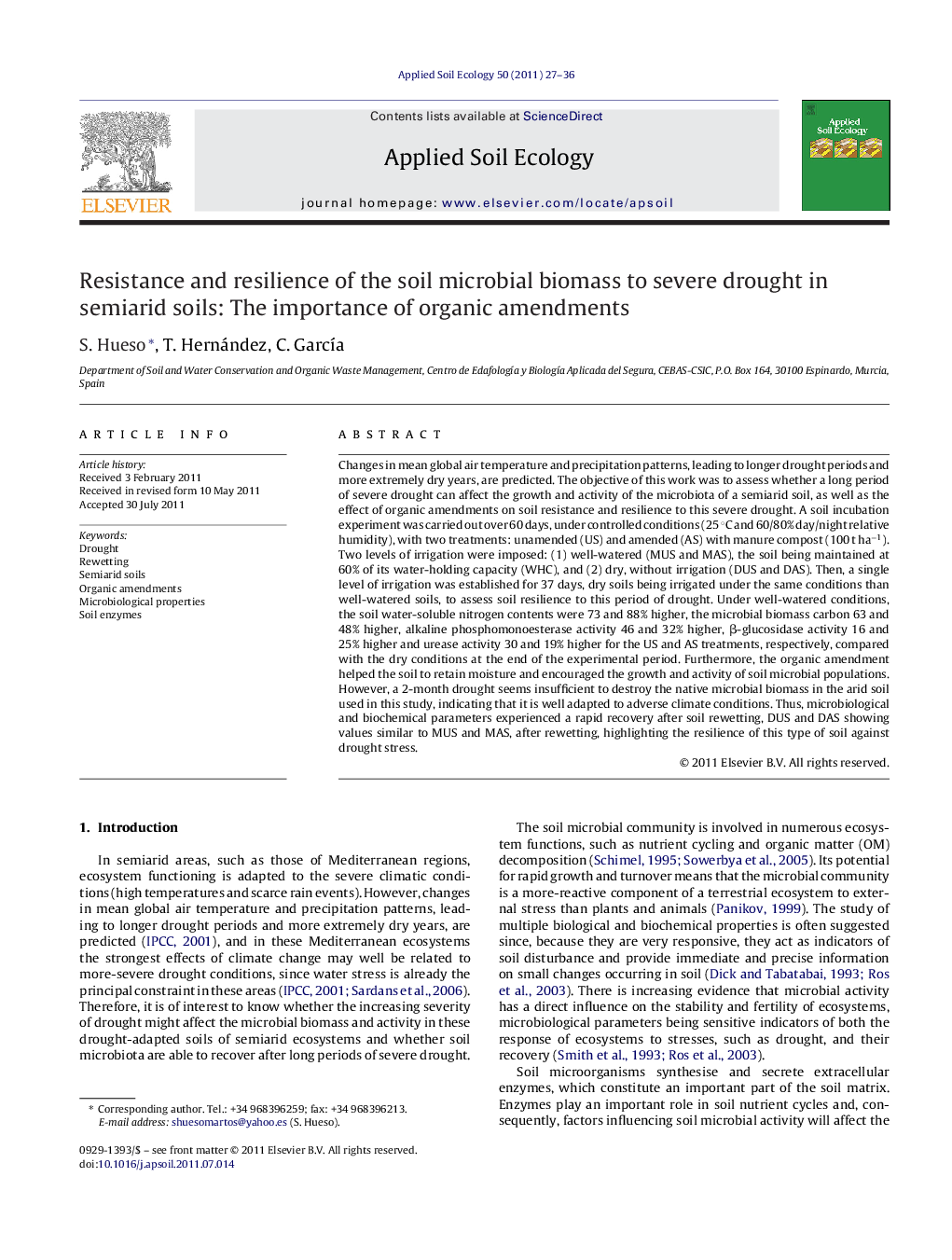| Article ID | Journal | Published Year | Pages | File Type |
|---|---|---|---|---|
| 4382613 | Applied Soil Ecology | 2011 | 10 Pages |
Changes in mean global air temperature and precipitation patterns, leading to longer drought periods and more extremely dry years, are predicted. The objective of this work was to assess whether a long period of severe drought can affect the growth and activity of the microbiota of a semiarid soil, as well as the effect of organic amendments on soil resistance and resilience to this severe drought. A soil incubation experiment was carried out over 60 days, under controlled conditions (25 °C and 60/80% day/night relative humidity), with two treatments: unamended (US) and amended (AS) with manure compost (100 t ha−1). Two levels of irrigation were imposed: (1) well-watered (MUS and MAS), the soil being maintained at 60% of its water-holding capacity (WHC), and (2) dry, without irrigation (DUS and DAS). Then, a single level of irrigation was established for 37 days, dry soils being irrigated under the same conditions than well-watered soils, to assess soil resilience to this period of drought. Under well-watered conditions, the soil water-soluble nitrogen contents were 73 and 88% higher, the microbial biomass carbon 63 and 48% higher, alkaline phosphomonoesterase activity 46 and 32% higher, β-glucosidase activity 16 and 25% higher and urease activity 30 and 19% higher for the US and AS treatments, respectively, compared with the dry conditions at the end of the experimental period. Furthermore, the organic amendment helped the soil to retain moisture and encouraged the growth and activity of soil microbial populations. However, a 2-month drought seems insufficient to destroy the native microbial biomass in the arid soil used in this study, indicating that it is well adapted to adverse climate conditions. Thus, microbiological and biochemical parameters experienced a rapid recovery after soil rewetting, DUS and DAS showing values similar to MUS and MAS, after rewetting, highlighting the resilience of this type of soil against drought stress.
► A long period of severe drought can affect the growth and activity of the microbiota of a semiarid soil. ► Organic amendments might influence on soil resistance and resilience to this severe drought. ► A 2-month drought seems insufficient to destroy the native soil microbial biomass. ► The N cycle is affected more than the C cycle by water stress. ► The new microbial biomass provided by organic amendments is more sensitive to water stress.
